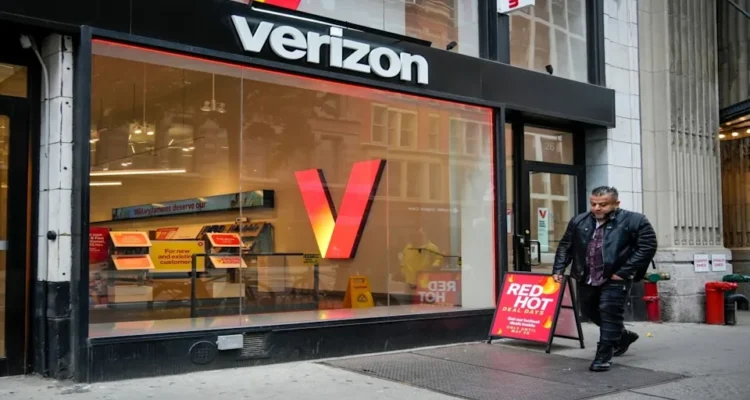Verizon is spiraling, and the numbers prove it. After months of jacking up prices on loyal customers, the company lost 7,000 postpaid phone users in just one quarter. Last year during the same period, Verizon was adding customers — now it’s bleeding them out.
CEO Dan Schulman finally admitted what every frustrated Verizon user already knew. The company leaned too heavily on price hikes, relied too much on squeezing families, and ignored subscriber growth. “This cannot continue,” he said, as churn shot to 0.91% and customers fled for cheaper alternatives.
Phone bills are crushing families nationwide, and Verizon has become the poster child for tone-deaf corporate greed. The average single-line plan in America is $76 — but Verizon customers pay even more at $79. Nearly half of customers using the major carriers say their bills jumped this year, and 58% are considering switching.
With millions of customers eyeing the exit, Verizon is scrambling. The company is preparing one of the largest layoffs in its history — roughly 15,000 employees. On top of that, about 200 Verizon stores will be converted into franchised operations, meaning even more workers will be cut loose.
Schulman insists this is part of making Verizon “leaner,” “scrappier,” and better equipped to compete. He says the company will slash its entire cost structure, overhaul operations, and pour more money into marketing and customer experience. But many analysts warn that shaving payroll won’t fix service problems or restore trust with customers who feel gouged.
Industry experts say if Verizon simply cuts jobs without improving its network, products, and customer service, it may stabilize — but it won’t grow. Customers want affordability and value, not corporate buzzwords and AI chatbots replacing human workers.
The timing couldn’t be worse for employees. Tech layoffs are sweeping the country, with more than 112,000 workers losing jobs this year. Nearly 40% of companies already plan to reduce headcount in 2025, and many admit they’ll replace roles with AI by 2026. Verizon is now part of that national trend.
Career experts say American workers will need to start reskilling fast, especially in AI and emerging technologies. The future workforce is shifting toward leaner, more automated companies — and Verizon just became a prime example of how quickly big corporations can change direction when profits dip.
As Verizon scrambles to cut costs, rebuild loyalty, and stop the customer exodus, millions of Americans are watching closely. For now, the company’s message is clear: buckle up, because the next chapter for Verizon is going to look very different from the last.
